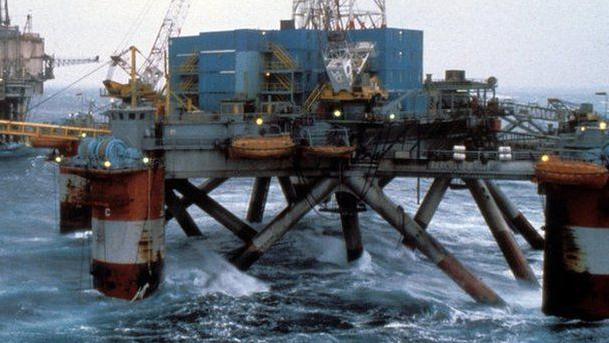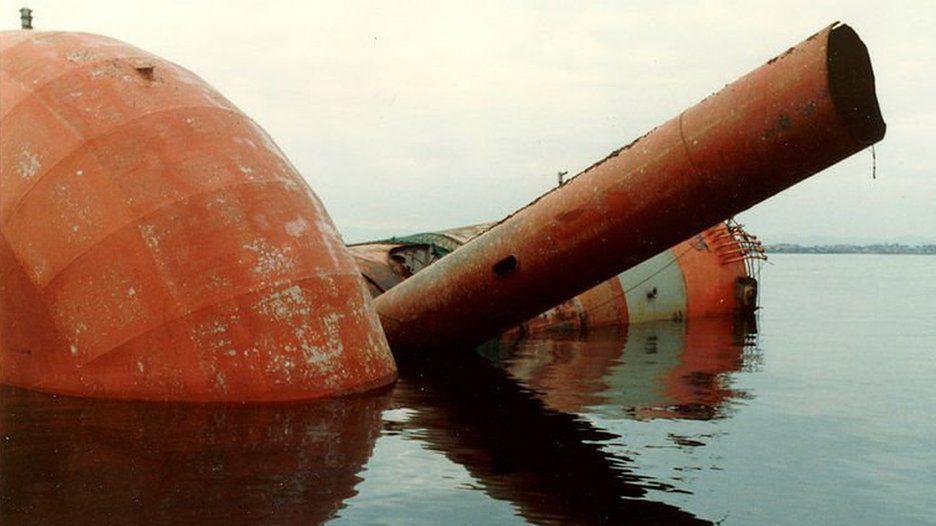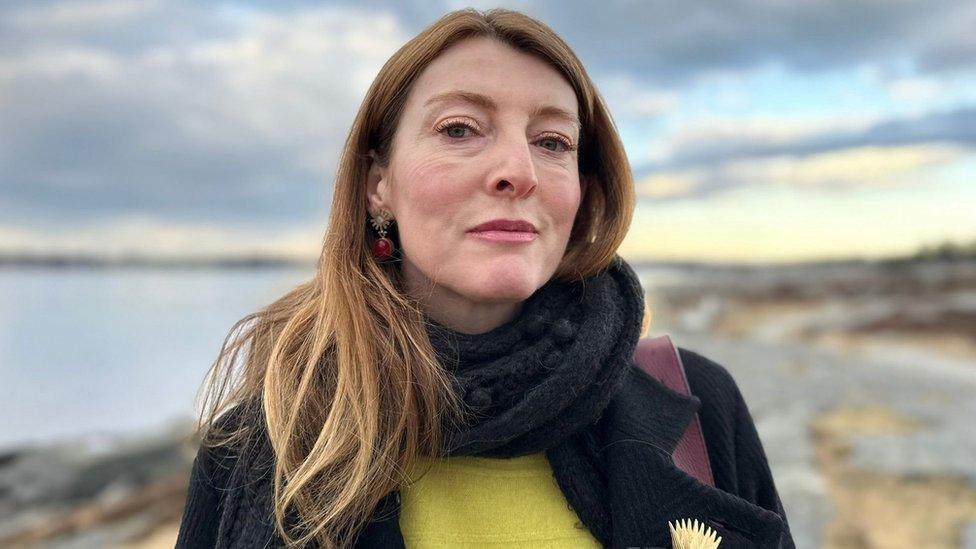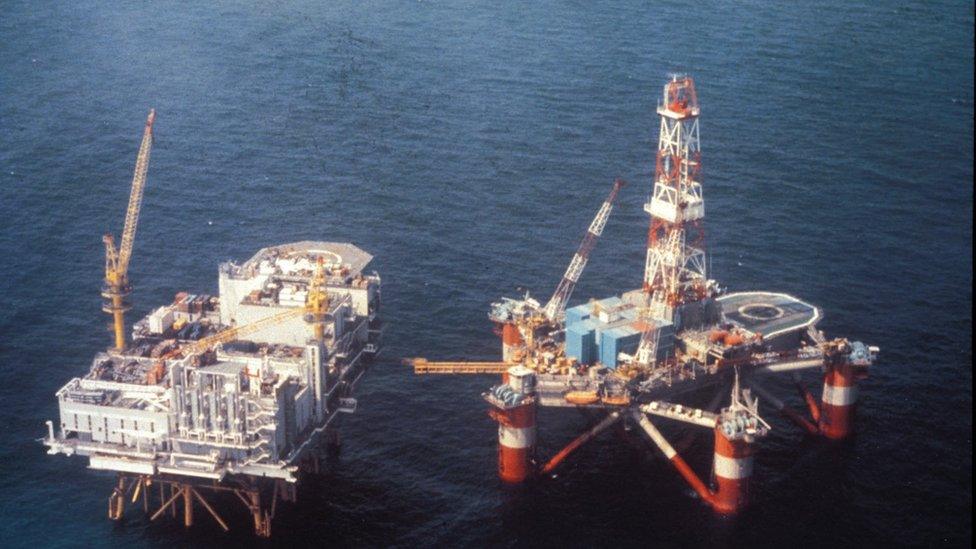Rig disaster families 'failed by authorities'

The Alexander Kielland accommodation platform capsized in March 1980
- Published
Families of the more than 120 men killed when an oil rig capsized 45 years ago were failed by official investigations, a new study has concluded.
The Alexander Kielland platform was being used as an accommodation block when it collapsed in the Norwegian North Sea during a storm in 1980, killing 123 people including 22 from the UK.
A new report by the University of Stavanger has concluded the reputation of the Norwegian petroleum industry was prioritised over providing justice to the survivors and victims' families.
The Norwegian government, which previously apologised for "insufficient" care for those affected, has been contacted for comment.
The Alexander Kielland capsized about 200 miles off the Norwegian coast when one of its five legs snapped off in storms on 27 March 1980.
There were 212 men on board, with five of those who died being workers from Cleator Moor in Cumbria.
Wayne Hunter, from Cleator Moor, and Laura Fleming from Durham both lost their fathers and previously told the BBC they still had questions about what happened.

A leg snapped off the platform causing it to capsize
The latest study by academics at the University of Stavanger, external looked at the way Norwegian authorities investigated and apportioned responsibility in the aftermath of the disaster.
Their report, which was co-authored by former anti-corruption activist and French magistrate turned politician Eva Joly, concluded a desire to protect the reputation of the oil industry "overshadowed the need to uncover the truth and ensure justice".
The official narrative blamed a welding failure at the French shipyard where the rig was built, but that "helped to obscure more complex issues of liability, system failure, and proper operation", the researchers said.
They found no evidence of a deliberate cover-up, but said it was "clear" authorities and companies had a "a common interest in limiting the attention to responsibility and causes" of the accident.
'Disregard for justice'
"At a time when Norway was a young oil nation, dependent on international cooperation and trust, it became absolutely crucial to maintain an image of a responsible and reliable industry," the academics said.
They said families had been "left with a lingering sense of injustice" by a "systemic failure" to investigate other factors, including the safety procedures, management and working environment on the rig.
The report said there was "significant" evidence to suggest the case could have been reopened and investigated as a criminal matter but it wasn't, which researchers said showed a "disregard for justice and a prioritisation of business interests".
It concluded survivors and the families of the victims of the "sudden and senseless tragedy" were "deprived of a truth" and the "opportunity to understand the complex causal connections".
The Kielland Network, which is made up of survivors and victims' families, has previously called for a new inquiry but the Norwegian government concluded in 2021 there was "no basis" for one.
Follow BBC North East on X, external and Facebook, external and BBC Cumbria on X, external and Facebook, external and both on Nextdoor and Instagram, external. Send your story ideas to northeastandcumbria@bbc.co.uk.
Related topics
- Published27 March 2024

- Published22 November 2023
